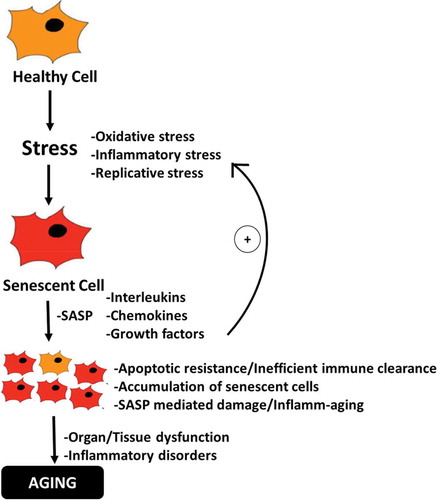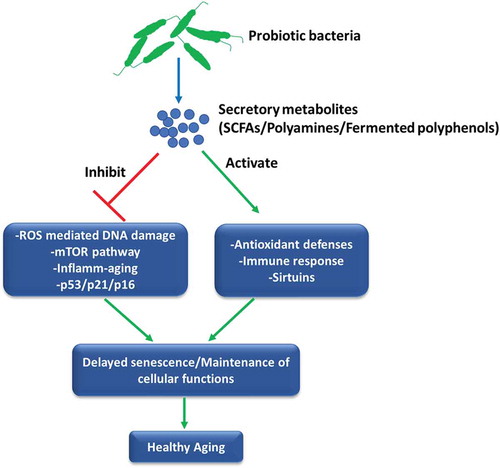Figures & data
Figure 1. Schematic diagram depicting the role of senescent cells in driving the process of aging. Oxi-inflammatory stress contributes to the development of senescent cells which gradually accumulate and promote inflamm-aging, resulting in tissue and organ dysfunctions and pro-tumorigenic environment characteristic of aging-phenotype.

Figure 2. Probiotics can influence the process of senescence. The secretory metabolites of probiotic bacteria such as polyamines, SCFAs or probiotic-fermented polyphenols could affect different aspects of cell senescence including cell cycle regulators, oxi-inflammatory stress, mTOR pathway and immune activation that may delay the initiation of senescence program leading to the augmentation of healthy aging.

